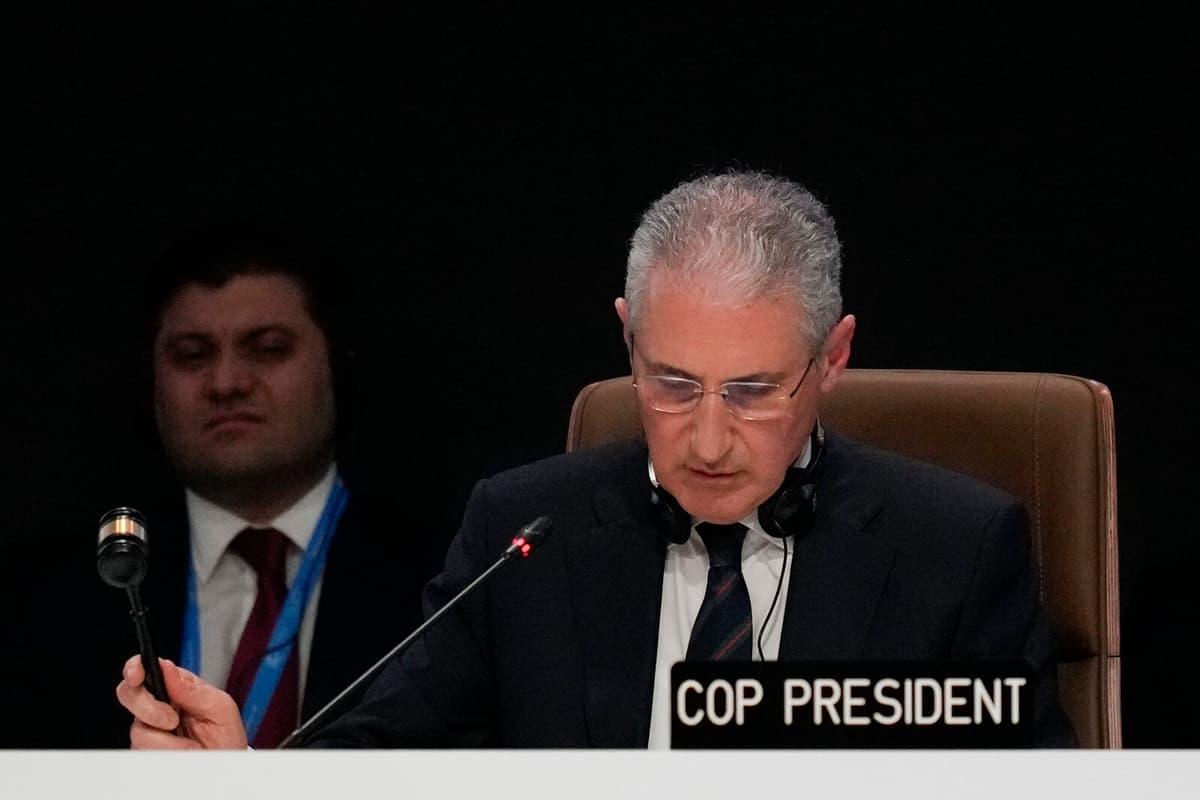The disappointment was great among the poorer countries after the agreement was adopted. The agreed amount was far below the $1,300 billion annually that they had demanded.
No country got everything they wanted, notes the UN's climate chief Simon Stiell, and emphasizes that it's not time to celebrate.
"We leave Baku with a mountain of work left to do," he says in a statement.
Near collapse of negotiations
The negotiations were supposed to be completed on Friday, but continued overtime and were close to collapsing on several occasions.
The small island states and least developed countries chose to leave the negotiations for a time, as they felt that their interests had not been taken into account.
On Saturday, it also became known that an official in Saudi Arabia – who is considered by many to be an obstacle at the UN's climate summits – was accused of making direct changes to official negotiation documents at COP29.
We feel a great frustration. Now we need to evaluate to ensure that Saudi Arabia cannot lead a resistance in this way again, says Climate Minister Romina Pourmokhtari to TT shortly after the agreement.
Increased bid
When the final meeting started at 8 pm local time, the prospects looked bleak for reaching an agreement on the disputed climate financing, where rich countries are to contribute annually until 2035 to help poorer countries with the transition.
When the agreement was reached during the night, the rich countries had increased their bid to $300 billion annually until 2035, from $250 billion on Friday.
The EU's climate chief Wopke Hoekstra is pleased that an agreement was reached after all.
"COP29 will be remembered as the start of a new era for climate financing," he comments.
Paris Agreement finalized
During the final meeting, the countries were also able to reach a final agreement on the controversial Article 6 of the Paris Agreement, which establishes rules for international cooperation on emissions trading to achieve climate goals. Further rules need to be established next year, but the decision is a major breakthrough for advocates of emissions trading after years of controversy.
UN Secretary-General António Guterres says he had wished for a more ambitious outcome, but the agreement from COP29 provides a foundation to build on.
"It must be fully honored and on time," he says.
At COP29, nearly 200 countries have agreed on a new target for climate financing – the money rich countries are to pay to help poorer countries tackle climate change.
The agreement entails a commitment of $300 billion per year, equivalent to 2,151 billion kronor, until 2035.
Until 2025, rich countries, such as the USA, EU, and Japan, had previously committed to providing $100 billion per year in climate financing.






